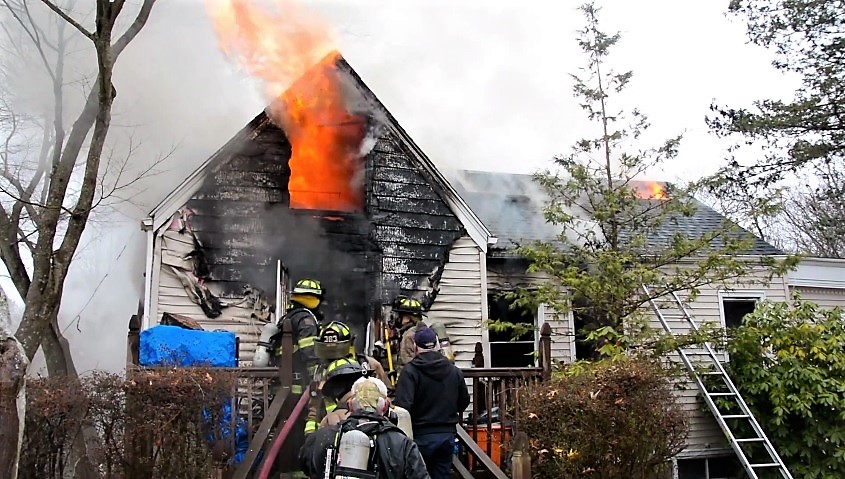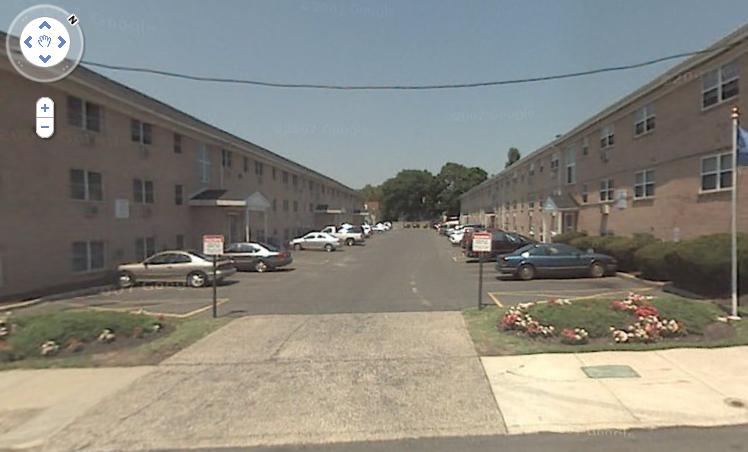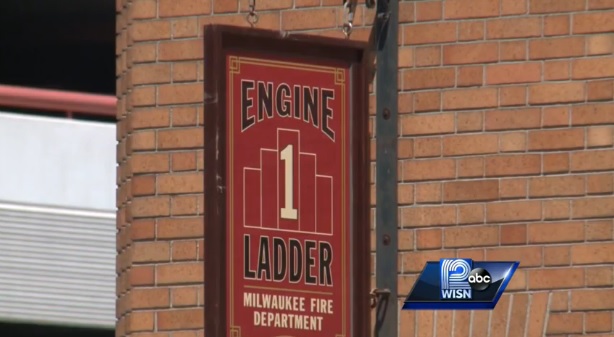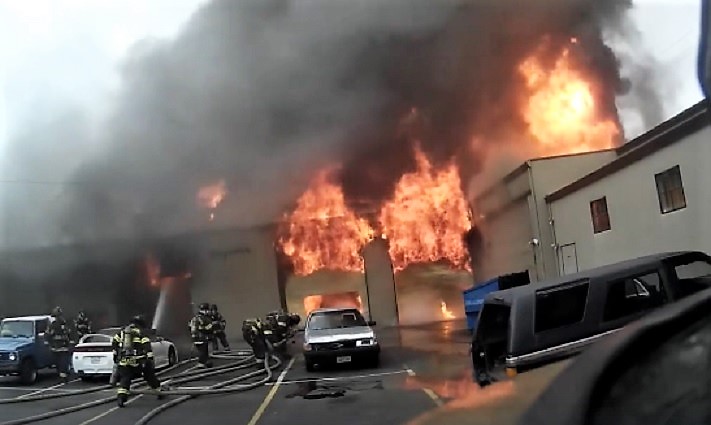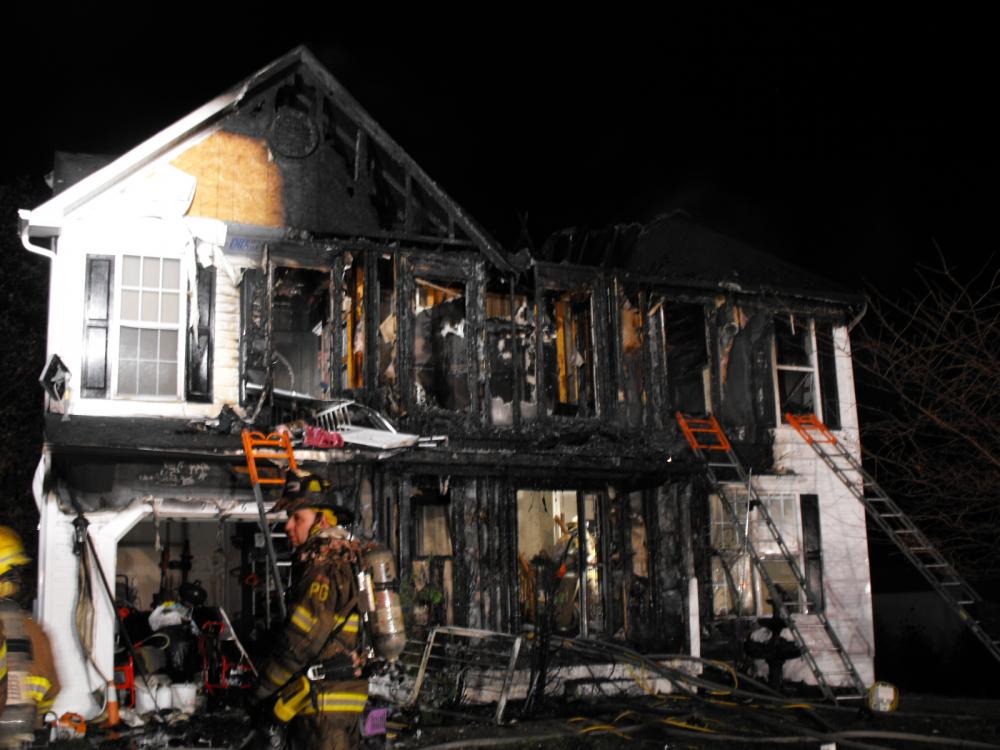NTSB believes Paulsboro, NJ fire & police may have done more harm than good after train derailment. Also says hazmat training & resources are a national problem.
Click here to follow STATter911.com on Facebook (hit “like”)
There is quite a bit of news coverage about the two days of hearings this week by the National Transportation Safety Board into the freight-train derailment and vinyl chloride release last November near Paulsboro, New Jersey. As you will see in the TV report above, NTSB members were very critical of the actions by police officers and firefighters at the scene. At the hearing, one member didn’t believe the fire chief’s response that “no one died” was an adequate standard for judging how well the incident was handled. Paulsboro’s police chief thinks the NTSB’s claim that firefighters and police officers may have done more harm than good was “unfair and unwarranted” (watch that story here).
But it’s clear NTSB does not believe this is just a Paulsboro or New Jersey problem. The lead of one of the articles by Rebecca Forand at the South Jersey Times makes that point: “Volunteer fire fighters and emergency response personnel being thrust into catastrophic events without adequate training or resources is a wide-spread problem that needs to addressed, the National Transportation Safety Board concluded on Wednesday.”
Malia Rulon Herman, Asbury Park Press:
First responders who swarmed the site of a freight-train derailment near Paulsboro, N.J., last November were not trained to deal with toxic substances like the vinyl chloride the train was carrying and did not own protective suits, federal investigators were told Wednesday.
“There is not enough hours in the day to handle home, family items and volunteer time and to get this training,” Glenn Roemmich, coordinator of the Paulsboro Office of Emergency Management, told National Transportation Safety Board officials.
The Paulsboro Fire Department is a volunteer squad, as are 70 percent to 80 percent of the fire departments across the country, said Robert Royall, chairman of the Hazardous Material Committee of the International Association of Fire Chiefs and assistant chief of emergency operations for the squad in Harris County, Texas.
“Paulsboro’s fire department is trained similarly to other volunteer departments in the country,” Royall told the NTSB investigators. “Most are trained at the operational level and know where to call up when the technician level is needed.”
Federal accident investigators believe local police and fire officials did more harm than good after a freight train carrying hazardous chemicals derailed in Gloucester County, N.J. last year.
NTSB investigator Paul Stencil said local authorities failed to follow standard procedures requiring the use of breathing apparatuses for responders — even though monitors found unsafe concentrations of the chemical in the air.
“One hour and a half after the derailment, the hazardous materials team air monitoring data showed the first responders being exposed to vinyl chloride concentrations that significantly exceeded permissible or safe levels,” Stencil testified.
Fire officials also set up a command post 50 yards from where tank cars were leaking. Safety standards called for the post to be positioned in a safe area outside the hot zone.
Stencil said investigators found misinformation about the hazardousness of the chemical ran rampant following the derailment.
Paulsboro Police reported the chemical was non-toxic, even after fire officials learned vinyl chloride was highly flammable and could cause respiratory and nervous system issues, according to the NTSB.
Police also changed an initial evacuation order to a shelter-in-place order about a half hour after the accident based on the false information over the toxicity of the chemical.
“Despite public statements that the hazard had completely dissipated, air monitoring teams continued to detect a vinyl chloride throughout the morning of the accident,” Stencil said.
Evacuation orders were eventually reordered that evening and lasted for several days.
Rebecca Forand, South Jersey Times:
“First and foremost was making sure the residents of the town was safe,” Fire Chief Alfonso Giampola said, defending his shelter-in-place decision. “Knowing its (vinyl chloride’s) characteristics, we didn’t want anybody walking in it, driving in it. That’s why we went to a shelter-in-place.”
One major point of questioning focused on the fact that none of the first responders or train personnel wore any respiratory apparatus during the hours and days following the chemical release.
The volunteer fire department, prior to the incident, was not equipped with the devices, and those issued by the county had been deemed ineffective shortly after the accident.
Police Captain Vernon Marino testified that the four officers he had on duty did not have respiratory masks, and they had to walk through the fog of chemicals to evacuate individuals.
“It’s an eye-opener. A wake up call. Shame on us. We really didn’t prepare for that incident,” Giampola said. “This is a training exercise and we have to look at it that way. We’re little, small Paulsboro, but if this happens again somewhere else other than Paulsboro, I hope that chief learns from the things we did and he can do it better.”
“The issues that we have with evacuating large numbers of people, we would still have today,” Glenn Roemmich, emergency management coordinator for the Paulsboro Office of Emergency Management, told National Transportation Safety Board investigators Wednesday.
First responders also still lack protective equipment. That lack made them vulnerable to exposure to vinyl chloride during the Nov. 30 derailment. But that may be difficult to remedy. NTSB officials estimated that 25,000 to 30,000 rail cars containing hazardous materials pass through Paulsboro each year. And a respirator that protects against vinyl chloride might not protect against the vast number of other chemicals in transit.
“How many canisters can I afford to buy for how many chemicals that go through?” Paulsboro Fire Chief Alfonso G. Giampola said Tuesday, citing budgetary constraints.
“This is not a Paulsboro problem,” NTSB vice chairman Christopher A. Hart said at the conclusion of the hearing. “This is a national problem: of resources, of training. How do we address the situation?”
“Unfair and unwarranted.”
That was Paulsboro Police Chief Chris Wachter firing back at federal investigators after the National Transportation Safety Board (NTSB) claimed that local officials may have done more harm than good when a train derailed in New Jersey last November. “Federal investigators are saying that; federal government at its best,” said Chief Wachter. “We did what we thought we had to do at the moment. It unfolded very quickly.”
The NTSB said that Paulsboro officials didn’t follow safety standards for handling a chemical spill, compounding first responders and the public’s exposure to the 23,000 gallons of vinyl chloride that leaked from the derailed freight train. “Once we realized what we had is when we started to make the other precautionary measures, sheltering in place, moving people in and out trying to lock everything down,” Wachter responded.
“No one should criticize them,” said Paulsboro resident Janice Callahan. “They did what they thought was best, but they didn’t have the correct information.” When asked who she blames, “It’s Conrail,” she said. Paulsboro residents defended local authorities and first responders, but the NTSB claims that they set up a command post too close to the spill hot zone. That first responders should have been wearing breathing apparatus and that local residents should have been evacuated, not told to stay indoors. “They weren’t here. They don’t know,” Wachter said. “They can say what they want to say. We know we did what was appropriate for the community.”
While Conrail wouldn’t comment, 24 local first responders have filed suit against the rail company since the spill. Claiming they suffer from headaches, breathing and neurological problems.Do you want to sell a rig? Click HERE to find out how with SellFireTrucks.com.




